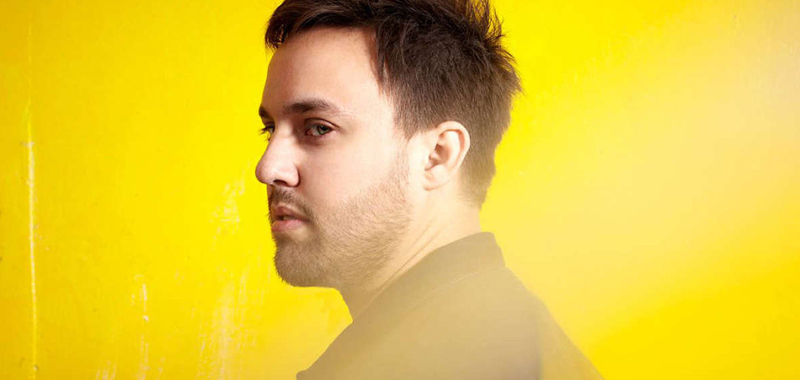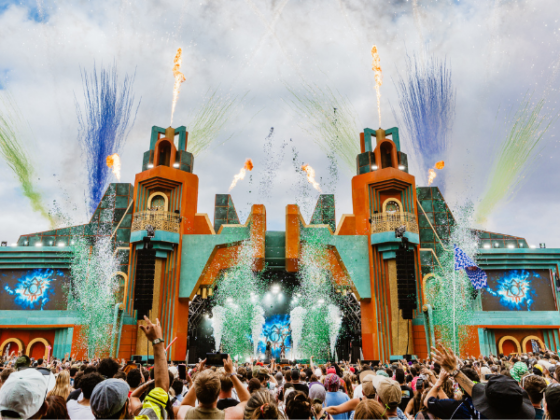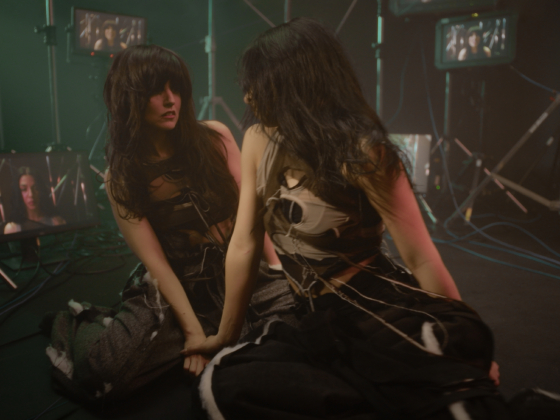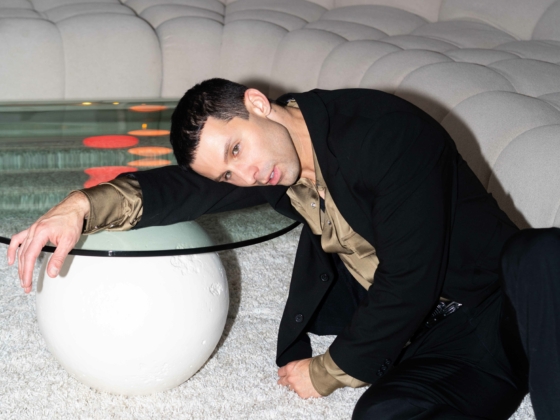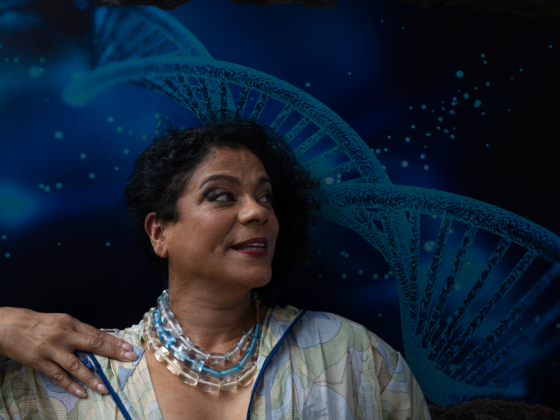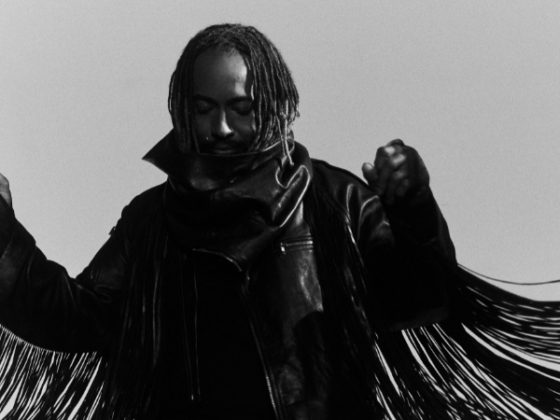Toronto's underground club scene has had an undisputed king for the past decade, and we got the chance to speak with one of the owners of the Footwork family, Joel Smye, ahead of their 5 year Anniversary (with none other than Maceo Plex and then Carl Craig this weekend) at their current home, CODA.
EM: You’re celebrating 5 years already at CODA this weekend, following up on the 8 and half years you had at Footwork. How have you seen the underground electronic music landscape change over the past 13+ years in Toronto?
Smye: It's changed drastically over that time. When Footwork opened, System Soundbar was still around, Boa, Roxy Blu too. House music seemed to be everywhere from clubs, to warehouses to bars & lounges. Strangely though, over the past 4 or 5 years, while licensed venues have been disappearing due to gentrification, staggering rent hikes and little support from the city, the scene itself still seems to be regrouping and showing more growth right now than I've seen in years. Promoter groups are becoming more professional and the DJ’s/ artists are exploring more genres within their sets. It's exciting to see and I can't wait to see where it goes. The city counsels are now engaged, working with businesses to help preserve what we have and ensure the future of music venues in general across the city. It's a process, but the progress is there and I think we'll see tangible results in the next 12-24 months.
EM: Where do you see things going in the next few years?
Smye: I'm not sure exactly what these next 12-24 months will bring. But I think we'll see more liquor license extensions. I think the legalization of Cannabis will have a big impact on how events are organized. We're following this closely obviously, waiting to see what the rules will be with regard to mixing alcohol and cannabis. Aside from licensing and regulation, I'm also seeing artists taking their craft to another level. Simply sequencing one track after another using software is becoming a thing of the past. DJ's putting the work in are standing out and the 'social dj's' are becoming a thing of the past. I call them social DJ's because for a while there, I was wondering how certain 'artists' manage to spend more time socializing during their sets than reading the room and actually performing.
EM: For those who may not have had the chance to visit Footwork, what was that club was all about? And why did things end there?
Smye: Footwork was an extension of our warehouse events at 99 Sudbury St. However, once we made the move from warehouse parties to a nightclub, the spirit of things was pretty different and not exactly what we expected. It took us about a year to redefine what we were doing. The strategies are different in a club. It's much more difficult to keep the room full 2 or 3 nights a week while maintaining a musical direction. But we put the work in to figure these things out and the result was an intimate nightclub with a bit of warehouse energy. The magic of Footwork though was its longevity. Over time customers started to call it 'home' which was very endearing to hear. Footwork had a family vibe to it because of the size of the room and the era in which it existed. It filled a void in the scene left behind by Industry and the crash of the mega-rave promotions. Now to me Industry is basically untouchable in what it brought to the city, but if Footwork is even mentioned in that conversation, I'm a happy guy :) Things ended there for a few reasons. Mostly we felt the need to move on. Eight and a half years is a long time. But the scene was growing again and we wanted to be a part of that. The changes in the neighborhood also kind of sealed the deal. All of a sudden we were surrounded by condos and mainstream clubs and we thought 'what the hell are we doing here?'. It was just time to go.
EM: As well as CODA, the Footwork family is behind Electric island, which has become the pinnacle of electronic music in Toronto each summer. Did you ever foresee the festival taking off in such a big way when you launched so many years ago?
Smye: I can't say we predicted it to grow as quickly as it did. But it was, and still is very encouraging to see the different scenes and crews within the industry come out and enjoy themselves. I think there's still room to grow, to include even more of what Toronto has to offer so we're not getting comfortable by any means. Like a lot of promoters, we are our own worst critics. We're always trying to improve from one event to the next.
EM: Anything new or exciting to mention for this upcoming season of EI?
Smye: There will be a few changes this year but we can't comment on it just yet. Announcements are coming soon though!
EM: You guys are also a partner of Vujaday Festival in Barbados, how did that come about?
Smye: A great opportunity was presented to us by Ryan Kruger who has a deep resume of events in Toronto (and beyond) with his company Destiny Productions. From the other end, the island of Barbados seemed supportive and ready to explore this endeavor in partnership with us. It just felt like stars were aligning for the concept to be a success. I came to the project with some experience doing events in the Caribbean with the SXM team, so collectively I think we have the right team to make the project thrive. Year 2 is coming up quickly, taking place April 3-7 with artists like Moodyman, Lee Burridge, Desert Hearts, Octave One, Sasha, Bedouin and many more headlining the festival. Our phase 2 announcement is coming out very soon with another wave of world-class headline performers.
EM: Maceo Plex and Carl Craig headline your anniversary weekend parties; what made these two your choices for the celebration?
Smye: Just 2 legends in their own right. Maceo has been a monster in the scene for years now and keeps pushing musical boundaries and the vision of what a party can be. His Mosaic series really helped bridge gaps musically within the dance world by bringing an eclectic mix of artists together. And Carl Craig really needs no introduction. He's been around pretty much since the beginning and has been consistently elevating dance music with innovation in his craft and challenging his fans and fellow artists to keep up that leadership. He manages to be a catalyst for evolution while never losing touch with his Detroit roots. He's had one of the most impressive careers I can think. Pure class without compromise.
EM: What have been some of your most memorable nights at CODA over the past 5 years?
Smye: Our anniversaries are always fun. Just another level of energy in the room for those special occasions. Specifically, Peggy Gou had the room hanging on her every move last year. Purple Disco Machine also had the room in the palm of his hand and my face hurt the next day from the ear to ear smile on my face. And any time Blond:ish or Honey Dijon play it's a beautiful thing. I'm sure I could list a lot more but these shows stand out to me right now.
EM: On a personal note, how did you get started in this business?
Smye: It only took one party to make me drop everything I was in to at the time and dive head first into dance music and learn everything I could. This was around 1994 and within a year or so I had my first set of turntables. While I loved dance music and mixing, I was also obsessed with turntablism. My scratching skills never really blossomed but I still have a trick or 2 up my sleeve! By 2000, I was full time hustling for gigs and then around 2002 my current business partner (Stephan Philion) and I aligned and started a series of warehouse parties at 99 Sudbury. 2 years later we decided to open our own venue which became Footwork – the rest is history I guess.
EM: Do you think you’ll get back into DJing more often at any point?
Smye: It's definitely on my mind but I just don't have the time right now. But I miss the digging for music more than anything. I also remember how obsessed I was with that 'crate digging' mentality and spending all of my free time on that. Then, I was working on DJ'ing at home practicing the craft any chance I could. But now, I firmly believe that the people putting that work in now are the one's deserving of opportunities. Until I start logging the hours again, I need to step aside and let the heads do their thing up there. I do miss it though. I still feel very much at home up there working a room. So at some point, when it feels right, I'm sure I'll want to revisit being an obsessive underpaid music junkie :)
EM: Thanks for chatting with us and enjoy the anniversary celebrations!
Connect with CODA: Facebook

